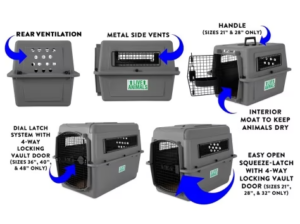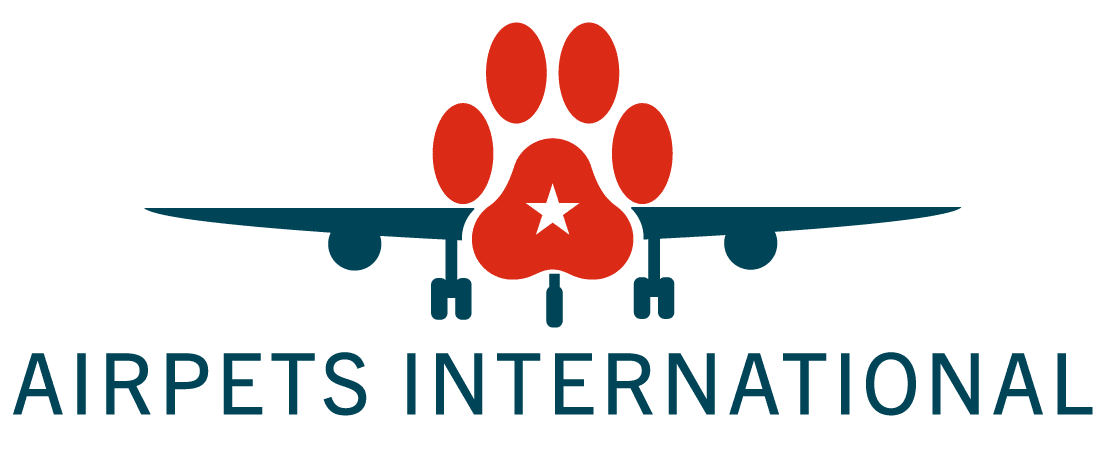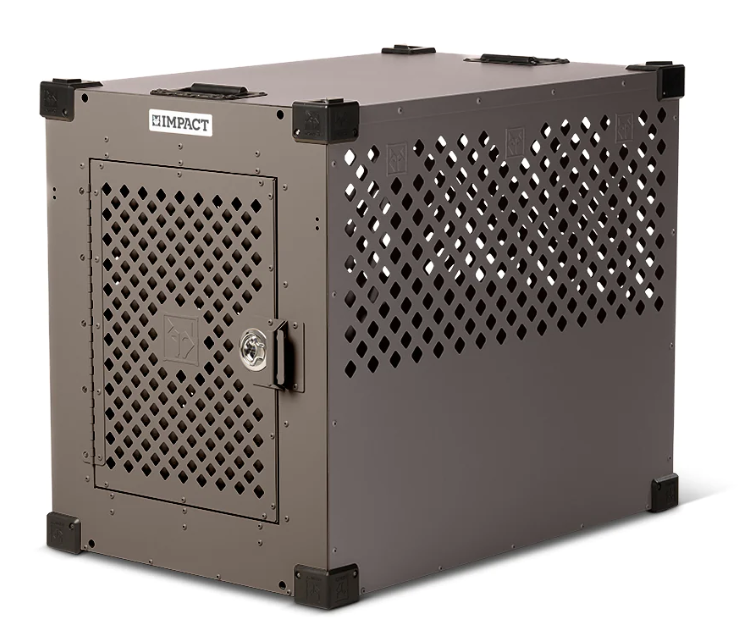Ensuring the well-being and comfort of your furry companion during travel necessitates careful consideration of their specific needs, particularly when it comes to selecting an appropriate crate – or even custom crates. To embark on this journey of finding the perfect crate for your dog, the initial step involves precise measurements—length, height, width, and weight are crucial metrics. An accurate guide for measuring your dog can be found here. It is imperative that the chosen crate allows your dog to sit, stand, and turn around comfortably to facilitate a seamless travel experience.

Custom crates come in three distinct types, each catering to unique requirements. CR82 crates are tailored for dogs belonging to aggressive breeds. Extended crates offer additional height for pets, while customized crates are designed to accommodate extra-large dogs that may not fit into standard crates available in stores.
CR82 Crates
CR82 crates, also known as Crate Requirements number 82, are specially constructed containers made of materials such as metal, hardwood, plywood, or similar sturdy substances. They feature two secure door fasteners on each side, preventing accidental openings. Airlines often mandate the use of CR82 crates when transporting dogs from aggressive breed lists, which can include breeds like Pit Bulls, Rottweilers, Dobermans, and others. It is crucial to note that airline regulations regarding aggressive breed lists vary, making it prudent to consult a dog shipping expert for the latest and airline-specific information.
Extended Custom Crates
When opting for an extended crate, it is essential to note that the extension primarily increases height. This modification proves beneficial when a dog’s head or ears lack sufficient room within the crate. To ensure comfort, an extra 3 inches of clearance from the top of the head or ears when the dog is in a sitting position is necessary. This customization allows you to purchase a smaller crate, providing adequate space for your dog to lie down and turn around, while the added inches cater to the comfort of the head and ears. An advantage of extending a crate rather than opting for a larger size is the increased versatility, as smaller crates can be accommodated on a wider range of airplanes.
For giant dog breeds like Saint Bernards, Great Danes, and Irish Wolfhounds, a customized crate becomes imperative. These breeds not only possess greater height but also substantial weight, necessitating expert craftsmanship to ensure safety during transportation. Customized crates for such breeds must adhere to specific requirements to guarantee the well-being of the dog. In cases where pre-made airline-approved travel crates fall short, opting for a customized or extended crate becomes a viable solution. Our range of customized crates not only fulfills the spatial needs of your dog but also guarantees that our dog relocation experts will facilitate a safe and comfortable journey for your beloved pet.
Contact Us
Contact one of our specialists or get an estimate to start your journey!
Visit us for more: www.airpetsinternational.com
Call us for more information: 866-738-7447
Email us: info@airpetsintl.com


